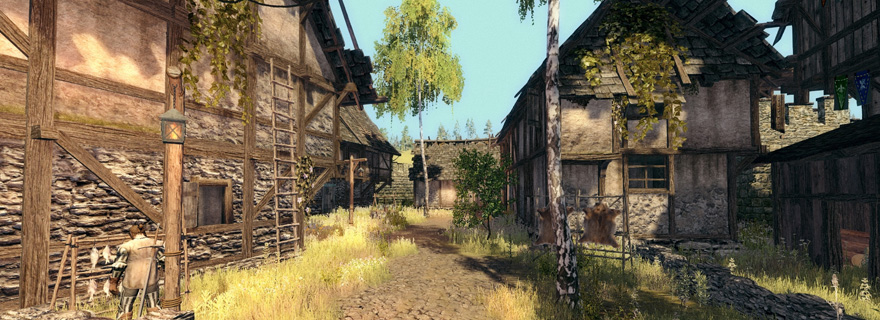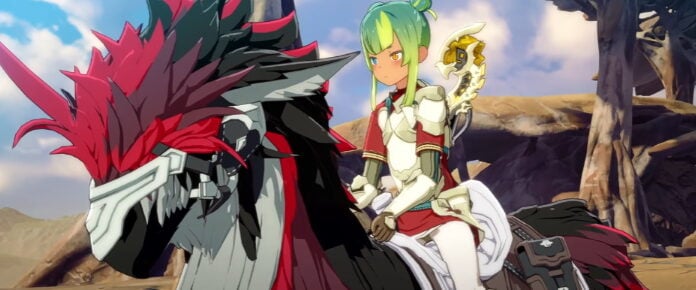
But that did not mean the MMO version was forgotten, and those who have been waiting to dive into this game on a more massive scale will soon have that opportunity. I sat down with Vladimir “Bobik” Piskunov, CEO/CTO of Bitbox, to talk about the state of development for the MMO. And one of the first things I learned is that the closed beta is slated for March 2016.
Here comes the sand(box)
While LiF:YO has been moving along (it recently shed its early access designation), the work for the MMO didn’t stop; that ultimate goal was always there. Piskunov acknowledged that a number of players are waiting for the more massive game to launch. Luckily, that wait isn’t too long now, and even has a date: He announced that closed beta will be starting up this March. The original alpha testers from the first time around (approximately 700 who donated at a certain tier), will be invited to start the testing. Then, depending on the results of that testing, after a couple weeks or so the servers will be opened up to admit the masses.
So what do players have to look forward to with the MMO version? For starters, a massive map! Piskunov explained, “We already have technology that allows us to interconnect many servers into one big seamless map.” In the pocket-version of the game, there is only one square; the massive version, however, is a large combination of those squares — 7×7 to be exact (21×21 km). It would take a character three hours to walk from one side of the landmass to the other. And with the way the map is designed, Piskunov said it would be easy to add more land as needed on the edges.
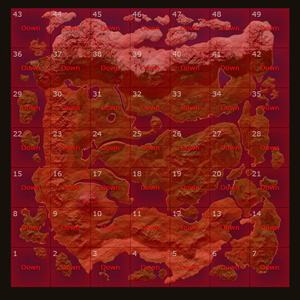 Speaking of the land, besides terraforming tunnels and the like, players will be able to own their own little patch of ground. This is different than LiF:YO, which only has guild land claims. To claim a personal piece of property, players will need some authority skill to place a monument down. As the player protects and maintains the land, his authority skill will increase, which increases the monument’s level, which in turn increases the size of protected land. The smallest plot is approximately 200 square meters, and land parcels can increase up to 10,000 square meters. Currently you use modular buildings, but there are modular pieces that can be used to make fortifications. Piskunov explained that there are plans to have modular rooms (kitchens, living rooms, etc.) that players can use to build customized homes.
Speaking of the land, besides terraforming tunnels and the like, players will be able to own their own little patch of ground. This is different than LiF:YO, which only has guild land claims. To claim a personal piece of property, players will need some authority skill to place a monument down. As the player protects and maintains the land, his authority skill will increase, which increases the monument’s level, which in turn increases the size of protected land. The smallest plot is approximately 200 square meters, and land parcels can increase up to 10,000 square meters. Currently you use modular buildings, but there are modular pieces that can be used to make fortifications. Piskunov explained that there are plans to have modular rooms (kitchens, living rooms, etc.) that players can use to build customized homes.
Trading is another sandbox element that will expand with the MMO. Right now, trading is limited to player-to-player interactions, but that changes with guild trading posts. Trade is very important because items and currency do not drop from any mobs in the world; everything — including currency — will be player made or harvested. As for the goods themselves, they can be sold in guild trading posts; these posts will show what is available for buying or selling globally but players must travel to each one to do business. To get the goods where they are desired, players can transport them via horse-drawn carts and even ships (which are coming to the LiF:YO in January and May or June, respectively). Of course, trade routes open up gameplay to caravans, mercenaries, and banditry.
Piskunov described how guilds at a certain level in Life is Feudal can actually mint their own coins out of gold and silver. However, guilds will have to maintain the value of their coin with goods, and others can try to devalue the coin. Guilds can require that purchases at their trading post be made in their own coin, forcing players to trade their own goods to obtain these coins. Think stock market mechanics in an MMO. Piskunov expressed that he really enjoyed creating this economic system (he has Ph.D. in economics).
Between having to find resources in certain areas, transporting resources, and the currency, players can certainly wage economic warfare. And speaking of warfare…
Playing politics and waging war
One of the things Piskunov is looking forward to with the MMO version is the larger-scale political aspects of the game, such as guild warfare. The Judgement Hour setting in LiF:YO, where for one predetermined hour all claims are unprotected and can be raided and looted with no alignment penalties, is not available in the MMO version of the game. Instead, the MMO will have a “proper political system.” Guilds can declare war on each other, and after 24 hours that war will become active. Players in these guilds — along with whatever allies they can muster up during that 24 hours — will then be teleported into an instanced server that is complete with landscaping but devoid of fortification where the battle will take place. That means players had better be sure they are prepared before time is up, because you go with what you have! And don’t forget, you do lose things when you die, so fight smart. Piskunov also noted that battlefield statistics will be recorded and shared, including how many died, how many ran away from the battle, and such.
The losing guild will lose one level of their guild monument, which reduces the size of protected land (meaning all buildings in that area are vulnerable to looting and attack). Once a guild monument reaches level one, the guild in war status with that guild can declare a siege. Unlike the earlier battles, sieges will play out on the live server with everyone available to participate. This is truly where the political aspects come into play; guilds will want to have as many allies as possible during both the instanced wars and any open-world sieges. Piskunov spoke with interest about a possible diplomacy system where guilds can swear fealty to other guilds. Those who swear fealty will lose political independence, but they will receive diplomatic benefits such as protection.
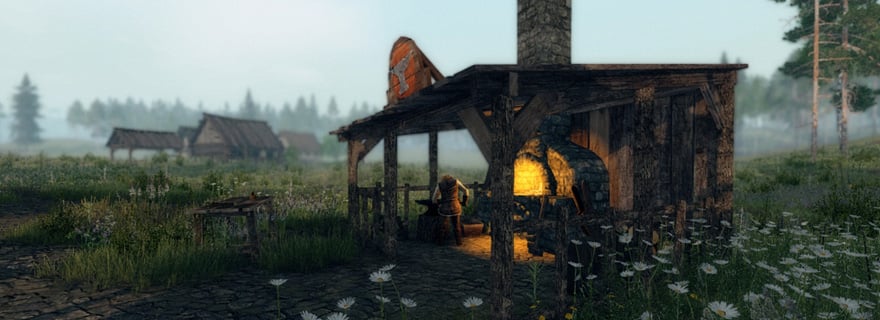 Crafting as a minigame
Crafting as a minigame
The crafting system in LiF has a bit of a twist. There is a minigame involved! “The idea,” Piskunov said, “was to add more immersion and add more fun into some tedious crafting skills.” He related how some other skills like alchemy, terraforming, or harvesting, have variety inherently in them; you have to discover, search, or shape. However, in some crafting professions you just can’t get around the fact that it is only a progress bar. So to liven things up and make the actions more fun, players can participate in a little game. Take chopping a tree, for example: A minigame representing how to cut a tree will pop up and players will have to time their actions to chop. If you want to see the basic mechanics of these minigames at work (or to get a leg up by practicing!), check out the web version that demonstrates the system. Currently the version is flash, but there are plans to make mobile ones as well.
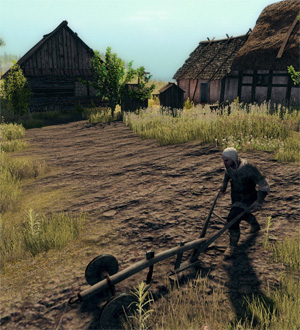 Besides the immersion or breaking up the monotony, what else are these minigames good for? How about rewards! Players can participate and get timing buffs or even some small quality buffs to their crafting. Take the tree chopping example above — success in the minigame means the tree may take 20 seconds to chop down instead of 30. Players’ skill in the game will also affect the result of the minigame.
Besides the immersion or breaking up the monotony, what else are these minigames good for? How about rewards! Players can participate and get timing buffs or even some small quality buffs to their crafting. Take the tree chopping example above — success in the minigame means the tree may take 20 seconds to chop down instead of 30. Players’ skill in the game will also affect the result of the minigame.
An important fact to note is that these minigames are not required to take part in harvesting and crafting. You can participate, or you can ignore them — it’s your choice. “We do not force everyone to play these minigames,” he emphasized. For those who do want to, these games can also be completed while logged off, and the bonuses will apply when you are online and able to complete your crafting activities. A player can also give friends a special guest link/key that will allow said friends to access his minigames and earn bonuses for him! That way, as Piskunov put it: “If you don’t like minigames, give [the guest link] to whomever you like and let them play the minigames for you.” have friends, reap rewards.
The minigames are not the only way players can be connected to Life is Feudal even when they don’t have the time or access to physically log into the client itself; Piskunov described how the in-game chat system is set up like IIRC, and players can enter it and communicate with others even while on the go, working out deals, doing political stuff, and such. He also talked of adding more functionality so players can be involved with the game when out and about.
Addressing payments and PvP
At the conclusion of the interview, Piskunov addressed a couple more important aspects of the MMO. One, was payment model. “The idea,” he said, “was to make a fusion of a buy-to-play model with a cosmetic shop.” He elaborated, saying that everyone can download the game for free to check it out; players will experience a taste of the game on a newbie island, basically a small server like Life is Feudal: Your Own. However, every 24 hours the landscape of that newbie island will be reset, so all physical changes to the world will be gone but player skills and inventory remain. “Basically it is our way of doing a trial,” he said. To make a permanent mark on the world, players will buy a character ticket that will give them access to the MMO. Piskunov emphasized that it was buying a character, not a character slot, which becomes important when considering the game’s faction system. And that leads us to the second topic.
Piskunov noted that the character tickets are “designed to reduce the amount of ganking.” They discourage folks from rerolling a new character when they die after many murderous misdeeds in order to avoid the steep skill point-loss penalty. Because players can only raise their karma by one point each day, and all crimes lose karma by varying amounts (i.e. one for assault, one for getting caught trespassing on someone’s property, three for knocking someone out, and 10 or 15 for murdering someone), it is hard to make up for wanton killing sprees. (Random hint: Blunt weapons only knock people out, and you can’t go below -49 unless you murder). When a player dies with really low karma, say -100, they lose a massive amount of skill points. If someone wants another character instead of accepting the consequence, he will have to physically pay for another character ticket. Sure, some will probably still do it, but with a real-world price tag on their actions, perhaps more will think twice about what they do.


